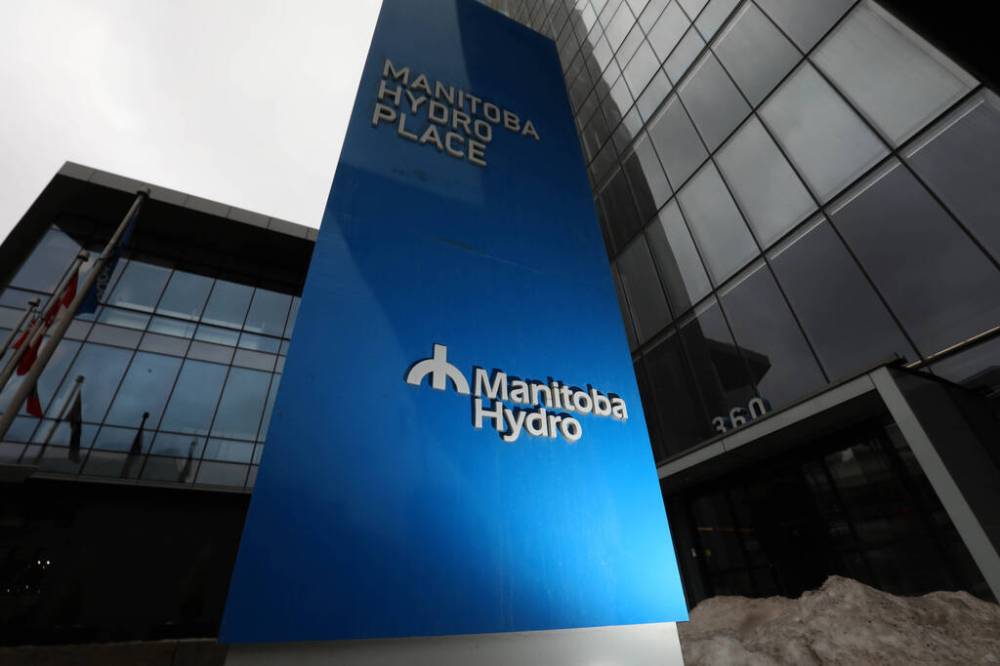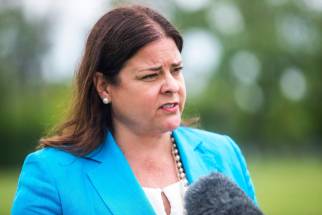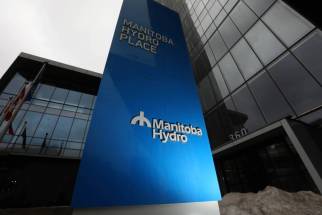Tory government betting on wrong numbers
Read this article for free:
or
Already have an account? Log in here »
To continue reading, please subscribe:
Monthly Digital Subscription
$0 for the first 4 weeks*
- Enjoy unlimited reading on winnipegfreepress.com
- Read the E-Edition, our digital replica newspaper
- Access News Break, our award-winning app
- Play interactive puzzles
*No charge for 4 weeks then price increases to the regular rate of $19.00 plus GST every four weeks. Offer available to new and qualified returning subscribers only. Cancel any time.
Monthly Digital Subscription
$4.75/week*
- Enjoy unlimited reading on winnipegfreepress.com
- Read the E-Edition, our digital replica newspaper
- Access News Break, our award-winning app
- Play interactive puzzles
*Billed as $19 plus GST every four weeks. Cancel any time.
To continue reading, please subscribe:
Add Free Press access to your Brandon Sun subscription for only an additional
$1 for the first 4 weeks*
*Your next subscription payment will increase by $1.00 and you will be charged $16.99 plus GST for four weeks. After four weeks, your payment will increase to $23.99 plus GST every four weeks.
Read unlimited articles for free today:
or
Already have an account? Log in here »
Hey there, time traveller!
This article was published 14/07/2022 (1242 days ago), so information in it may no longer be current.
It is often said, in the heat of political battle, combatants have the right to their own opinions but they do not have the right to their own version of the facts.
When it comes to the debate over the future of Manitoba Hydro, that essential principal seems to have eluded the Progressive Conservative government.
For several years, the Tories have attempted to severely limit Public Utilities Board authority over Hydro rate applications. Former premier Brian Pallister and current Premier Heather Stefanson both introduced legislation that would essentially gut any hope of an independent review and give cabinet new authority to control rates.
When asked why, both Pallister and Stefanson and their ministers have repeatedly claimed the cost to Hydro for a PUB rate application hearing is $10 million annually, an expense that was, in and of itself, driving up electricity rates.
That information shows categorically while annual costs have fluctuated– from a low of $561,000 to a high of $14 million — the average annual cost of a PUB rate application is less than $2.7 million.
Where do those costs come from? As is the case in any regulatory proceeding, the applicant (Hydro) has to pay all expenses for the PUB, any experts it retains, and the intervenors for legal representation and technical advice.
The $10-million figure was repeated as recently as March, when Finance Minister Cameron Friesen introduced a new bill to limit PUB oversight. “It’s not in our interest, on an annual basis, (to have) a hearing that costs $10 million,” Friesen said. “That’s a significant cost that could go to keeping rates lower.”
Many of those intervenors, including the Consumers Coalition, have accused the Tory government of inflating the annual costs by as much as 300 per cent. No matter, the Tories have forged ahead with plans, repeating their $10 million figure as justification.
Fortunately, there is new information on this issue from a most unusual source: Manitoba Hydro.

Hydro’s most recent filings with the PUB include a detailed breakdown of regulatory costs over the last 10 years. That information shows categorically while annual costs have fluctuated — from a low of $561,000 to a high of $14 million — the average annual cost of a PUB rate application is less than $2.7 million.
Even if you add in the cost of gas rate applications (which average $800,000 per year) it is an average of $3.5 million.
Why would this government deliberately use an erroneous figure?
In an emailed statement, Friesen’s office would only double down on the assertion the true cost is $10 million, completely ignoring the information Hydro just filed with the PUB.
As long as the Manitoba government continues to misrepresent the true costs of rate applications, we may never know exactly why Bill 36 is necessary. In the absence of a salient explanation, opposition parties and intervenors believe the Tories want legislated authority to sidestep the PUB.

The PC government has shown a determined inclination to attack budget deficits and debt at the expense of core services.
Pallister, in particular, embodied this strategy. Throughout his five years in office, Pallister froze funding to key services so he could pull off a rare fiscal daily double: cutting the deficit and taxes at the same time.
The strategy worked as the deficit went down and a whole host of taxes went out. But it came with a cost: education, health care and other core government programs were severely damaged.
If you’re wondering why wait times for elective surgeries are so high or why you’re paying more for school supplies each fall, you can largely blame Pallister era austerity.
In that context, perhaps it’s not surprising the Tories are obsessed with Hydro’s debt. The problem is this obsession is going to have severe consequences for energy customers.
The Tory government is fully aware without the legislative authority, the PUB wouldn’t allow Hydro to raise rates just to meet these targets.
As it stands, Bill 36 requires the Crown corporation to drastically reduce its debt, a liability that grew significantly in recent years because of NDP mismanagement of the Keeyask generating station and Bipole III transmission line.
Currently, Hydro has a debt-to-equity ratio of 88 per cent to 14 per cent. Bill 36 would require Hydro to achieve a 80-20 ratio by 2035, and a 70-30 ratio by 2040.
Intervenors who oppose Bill 36 estimate Hydro will need $5 billion in additional revenues, through a combination of export sales and rate hikes, to meet those targets. They believe these legislated targets will require Hydro to seek rate hikes much higher than if it were allowed to operate under the current ratio.
The Tory government is fully aware that, without the legislative authority, the PUB wouldn’t allow Hydro to raise rates just to meet these targets.
In past rate hearings, the PUB heard from market experts who concluded, as a Crown monopoly, Hydro’s current debt load is not a concern for lenders or credit rating agencies.
Notwithstanding the information Hydro recently provided to the PUB, the Tories will continue to use wrong numbers to justify Bill 36 — an unprecedented political attack on the independent system for regulating Hydro rates.
While that may only be an opinion, there is a mounting body of facts to support it.
dan.lett@freepress.mb.ca

Born and raised in and around Toronto, Dan Lett came to Winnipeg in 1986, less than a year out of journalism school with a lifelong dream to be a newspaper reporter.
Our newsroom depends on a growing audience of readers to power our journalism. If you are not a paid reader, please consider becoming a subscriber.
Our newsroom depends on its audience of readers to power our journalism. Thank you for your support.
History
Updated on Thursday, July 14, 2022 7:43 PM CDT: Changes alluded to eluded.
Updated on Friday, July 15, 2022 7:13 AM CDT: Adds missing words for clarification








